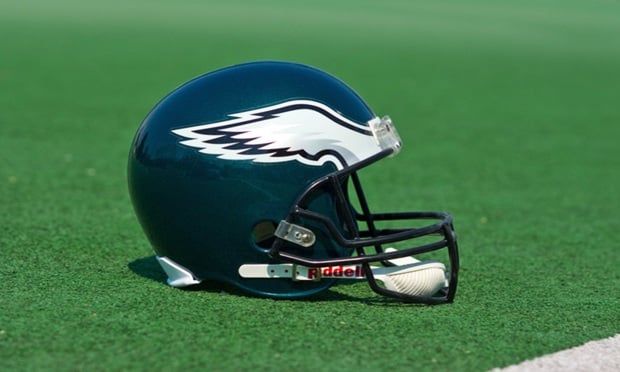In his first annual shareholders meeting address, American International Group President and Chief Executive Officer Robert Benmosche highlighted the company's strong 2010 first quarter results and increased retention of business and employees, while warning about possible volatility ahead.
Earlier this month, AIG reported a 2010 first quarter net profit of $1.45 billion–a turnaround from the 2009 first quarter net loss of $4.35 billion.
First-quarter continuing insurance operations at AIG had net income of $2.22 billion–up from $908 million for the same period last year. Results improved despite $481 million of catastrophe losses resulting from events such as the Chilean earthquake. The bottom line boost was the result of improvements in investments.
Net premiums earned by Chartis and other AIG property and casualty businesses fell about 8 percent in this soft commercial insurance market, down about $631 million to $7.64 billion. Yet income before net realized capital gains grew 24 percent, or $169 million, to $879 million.
Catastrophes pushed the segment's combined ratio up 5.83 points, to 102.51.
Mr. Benmosche gave AIG employees credit for the improved financial performance. “The headline should be, 'Our people continue to make great progress,'” he said during a May 7 recorded address after earnings were released.
He said the company remains committed to paying the U.S. government back for loans extended to it in 2008 and keeping the company's remaining assets viable.
“All that said, 2010 will continue to be a transition year for all of us–one in which our total earnings could be somewhat volatile and where we could incur restructuring-related charges, including for good-will impairment as well as gains, including gains related to sales,” according to Mr. Benmosche.
Repayments to the government will affect future earnings, he added.
Mr. Benmosche said Chartis–AIG's rebranded property and casualty operation–is doing much better than it was in the recent past, when critics predicted the company would suffer “an enormous erosion of its business.” He said the reception of Chartis at the recent Risk and Insurance Management Society conference in Boston demonstrates that “AIG is back.”
“And I can guarantee you that we will work hard on our goal to become the preeminent global property insurer,” he said.
The acquisition of majority stock ownership in Fuji Fire and Marine Insurance Company, a Japanese carrier, indicates that the company is seeking to grow by making acquisitions while at the same time divesting what it needs to pay back government loans, according to Mr. Benmosche.
AIG remains on track to sell American Assurance Company Ltd. and American Life Insurance Company, and the deals should be completed by the end of the year, he said.
Speaking on May 12 to the company's shareholders in New York, Mr. Benmosche said first-quarter results show progress for the company. He added that the goal for AIG as it comes through the financial crisis that forced it to take billions in government funds to avoid bankruptcy will be to stabilize the organization and then run the company profitably.
Mr. Benmosche pointed to the ability of International Lease Finance Corp.–an airplane leasing unit owned by AIG–to raise $4 billion in debt and the strong performance of AIG operating companies as further signs of the company's return to health. “And you see our customers coming back,” he noted.
He said the company is also continuing to de-risk its Financial Products unit–which was at the heart of the company's near-collapse that led to government intervention in 2008.
Mr. Benmosche thanked the Federal Reserve and U.S. Treasury for being “partners as well as overseers.”
Asked by a shareholder if the company can continue to post profits, Mr. Benmosche said because AIG operates in a “world of complex accounting,” there may be some volatility in bottom line net income going forward, but he said the company's core businesses will continue on a trend of profitability.
Responding to a shareholder question about whether AIG may have been harmed in its prior dealings with Goldman Sachs on credit default swaps on collateralized debt obligations involving subprime mortgages, Mr. Benmosche said AIG's legal staff will look at all of its actions with Goldman, and if they find AIG was wronged, he said the company will take action.
AIG Chairman Harvey Golub said Goldman is a fine firm that does a lot of things well, and he said AIG will use them in instances where AIG feels it can benefit.
He said in instances where the company can get better service with other firms, it will go that route. “We deal with most banking firms,” he said.
His comments came after a stockholder asked about a May 6 New York Times report that AIG had replaced Goldman as its main corporate adviser.
In his May 7 statement, Mr. Benmosche also talked about AIG's efforts to repay the Federal Reserve Bank of New York for the aid the New York Fed provided during the financial crisis.
The sale of AIA and ALICO should reduce the loan obligations substantially, Mr. Benmosche said. AIG said its net New York Fed borrowing stands at $21.6 billion, plus interest and fees of $5.8 billion.
Want to continue reading?
Become a Free PropertyCasualty360 Digital Reader
Your access to unlimited PropertyCasualty360 content isn’t changing.
Once you are an ALM digital member, you’ll receive:
- Breaking insurance news and analysis, on-site and via our newsletters and custom alerts
- Weekly Insurance Speak podcast featuring exclusive interviews with industry leaders
- Educational webcasts, white papers, and ebooks from industry thought leaders
- Critical converage of the employee benefits and financial advisory markets on our other ALM sites, BenefitsPRO and ThinkAdvisor
Already have an account? Sign In Now
© 2024 ALM Global, LLC, All Rights Reserved. Request academic re-use from www.copyright.com. All other uses, submit a request to [email protected]. For more information visit Asset & Logo Licensing.








